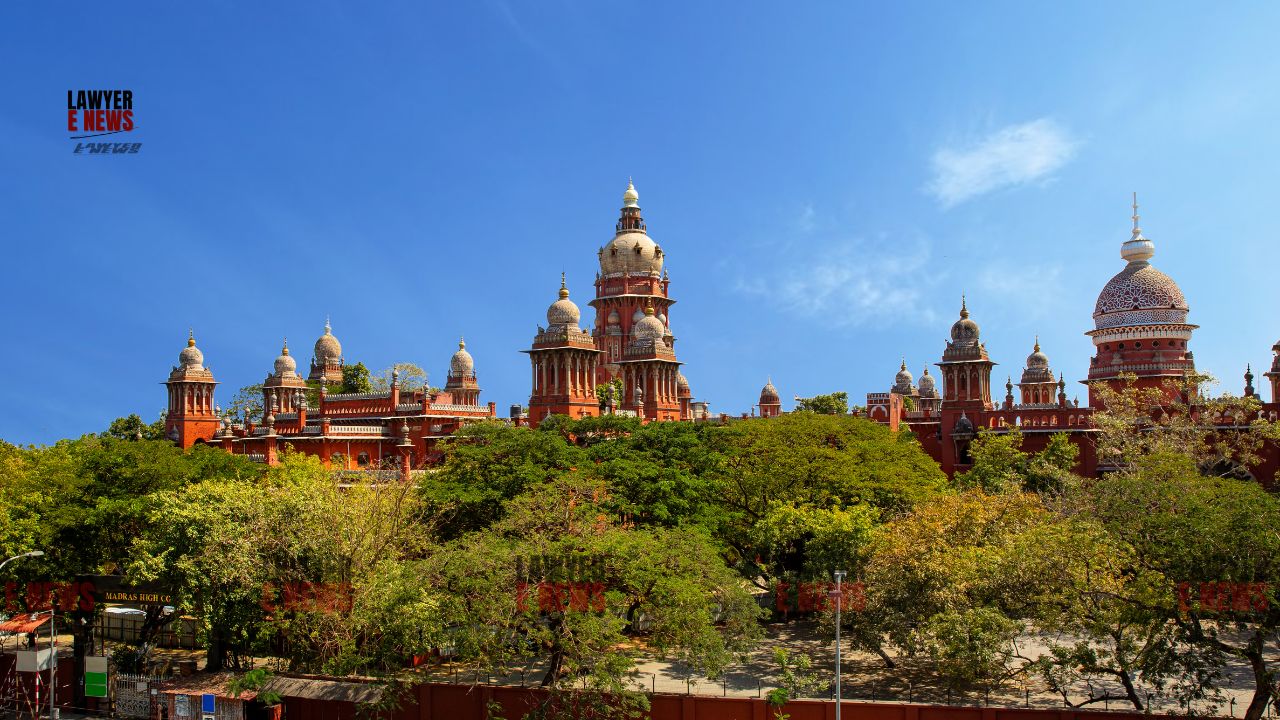-
by Admin
15 February 2026 2:16 AM



The Madras High Court, in a significant ruling, quashed the charges against a homemaker accused of selling drugs without the supervision of a registered pharmacist. The judgment, delivered by Justice G. Jayachandran on September 4, 2024, found that the prosecution had failed to provide adequate evidence linking the petitioner to the sale of drugs, emphasizing that mere presence at the shop during the inspection was not sufficient to establish criminal liability under Section 18© of the Drugs and Cosmetics Act.
The case originated from an inspection conducted by the Drug Inspector of the Saidapet Range at a medical shop, M/s Pradhan Mandri Bharthiya Janaushadhi Kendra, on September 30, 2021. During the inspection, the proprietor, Kalidass, and the registered pharmacist, Dhanalakshmi, were not present. The petitioner’s wife, Sumathi, was found at the premises and was accused of selling drugs in violation of the Drugs and Cosmetics Act. Based on the alleged contravention, a complaint was filed against both the proprietor and Sumathi.
Sumathi challenged the complaint in the High Court, contending that she was not involved in the shop’s management and had only temporarily been present to assist her husband.
Lack of Prima Facie Evidence: The court underscored the absence of concrete evidence to prove Sumathi’s involvement in drug sales. “There is no material placed along with the complaint to show that the drugs mentioned in the bill Nos. 7853 and 7856 dated 30/09/2021 were sold by the petitioner,” Justice Jayachandran noted, emphasizing that the complainant’s assumption was insufficient for prosecution.
Burden of Proof: Justice Jayachandran emphasized that while Sumathi was present at the shop, the prosecution had failed to establish that she had sold any drugs. The court rejected the complainant’s presumption that Sumathi was responsible for the sales simply because she was present at the time of the inspection. The judge pointed out that no test purchase or verification had been conducted to establish the sale of drugs without a pharmacist’s supervision.
The court further observed that the main responsibility for the alleged contraventions lay with Kalidass, the proprietor, and not Sumathi, who had merely been present at the shop temporarily. The complainant had relied on a phone call where Kalidass reportedly consented to Sumathi managing the shop during his absence. However, the court found that this claim lacked documentary evidence, and Sumathi had denied it in her written response to the show-cause notice.
The court highlighted the need for substantive evidence in cases of alleged contravention under the Drugs and Cosmetics Act. Justice Jayachandran reiterated that criminal prosecution cannot be based on mere assumptions or the presence of an individual at the scene. In this case, the complainant’s failure to conduct a test purchase or present documentary evidence showing Sumathi’s involvement in the sale was a critical flaw in the prosecution’s case.
Justice Jayachandran observed, “The best practice for any inspector should be to conduct a test purchase and then, lay the complaint if any contravention.” Without such steps, the court could not uphold charges against Sumathi.
In a key observation, Justice Jayachandran stated, “Mere presence of A-2 at the time of inspection may not be sufficient to prosecute her. There is no material placed along with the complaint to show that the drugs mentioned in the bills were sold by the petitioner.” The court also remarked on the importance of establishing direct evidence of contravention rather than relying on presumptions.
The quashing of charges against Sumathi reinforces the importance of evidence in prosecuting alleged violations under the Drugs and Cosmetics Act. The court’s ruling sends a clear message that assumptions based on circumstantial factors, such as mere presence at a shop, are not sufficient for criminal liability. This decision sets a precedent for future cases involving similar allegations, stressing the necessity for clear and direct evidence to support such prosecutions.
Date of Decision: September 4, 2024
K. Sumathi vs. State Represented by the Drugs Inspector, Saidapet Range
